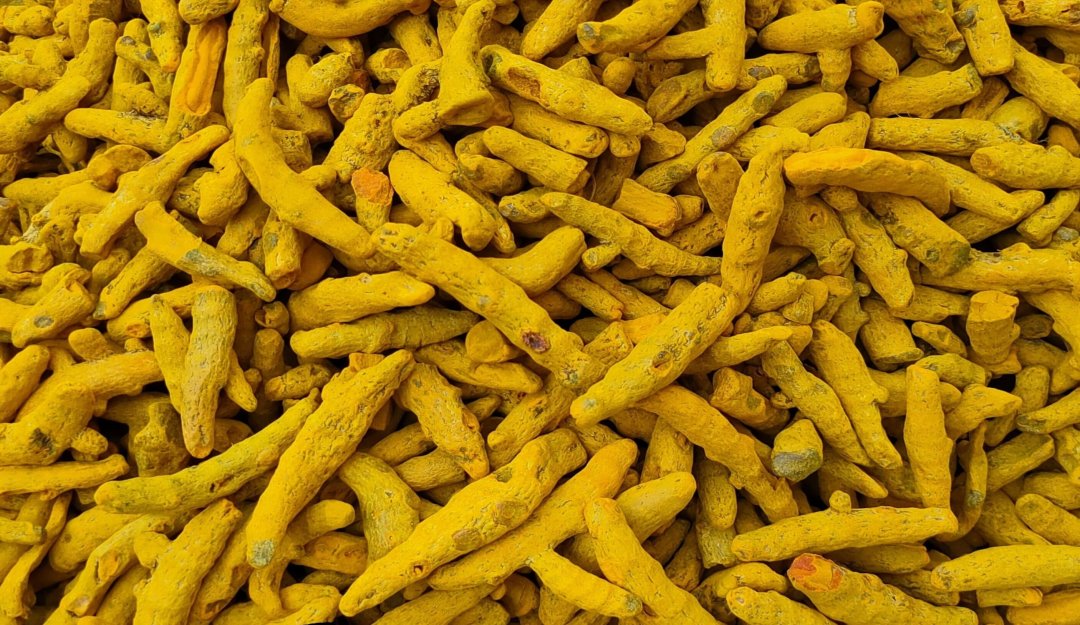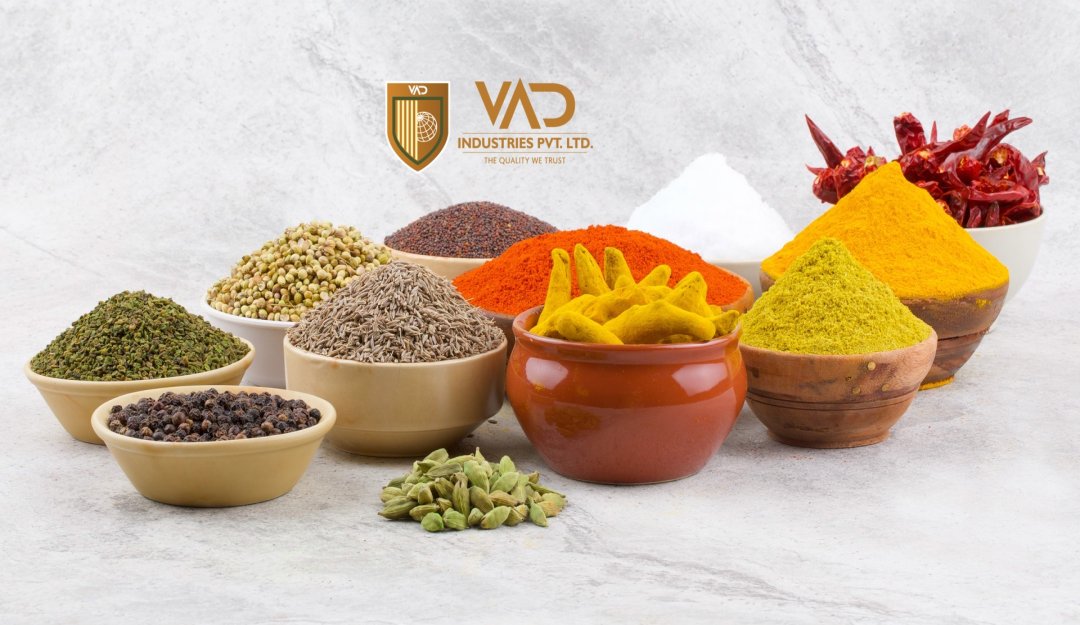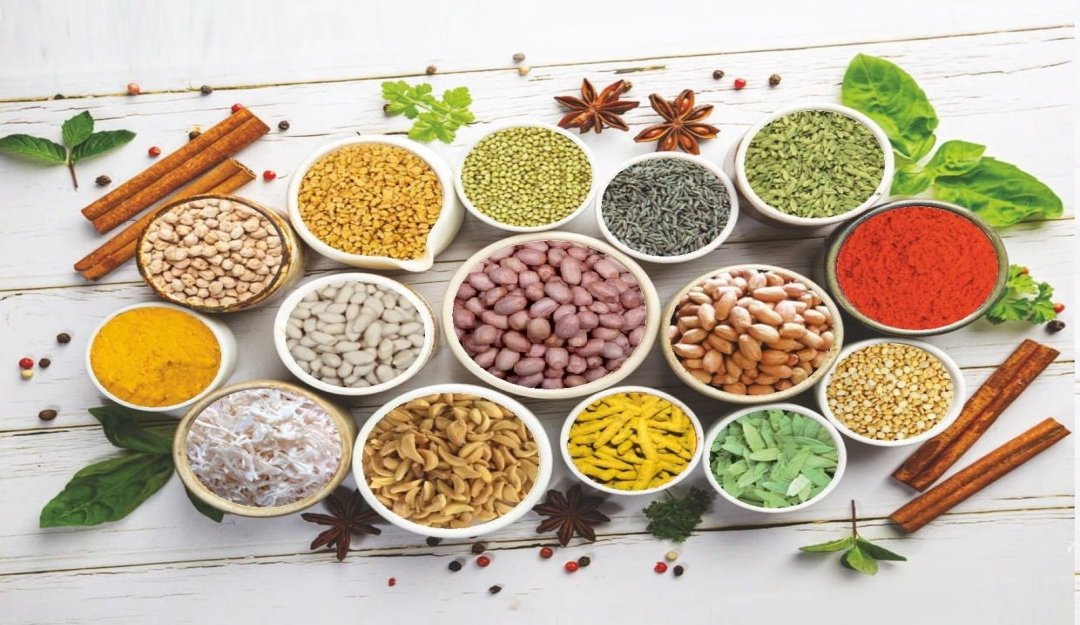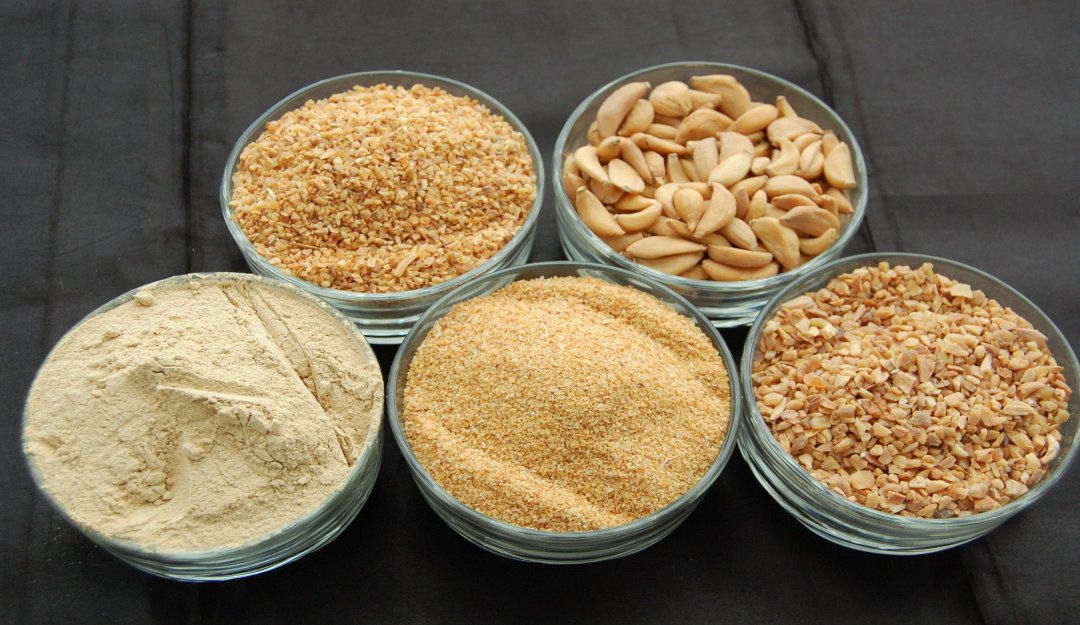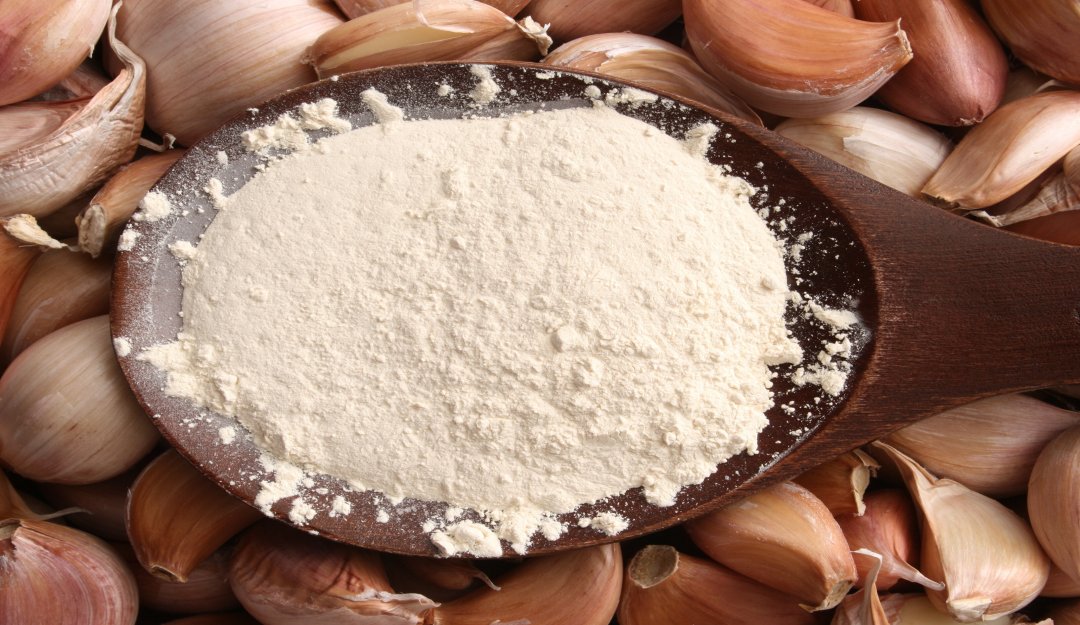Difference Between Whole & Ground Spices in Export Quality
-
By
VAD INDUSTRIES
- September 21, 2025
- Indian Spices
- 0 comments
Spices are the soul of Indian cuisine and a cornerstone of the global food industry. For centuries, India has been the leading hub for spice production and exports, supplying both whole spices and ground spices to international markets. But what exactly differentiates the two forms when it comes to export quality?
Understanding the difference between whole and ground spices is critical for importers, distributors, and buyers who want consistency, long shelf life, and premium-grade products. Let’s take a closer look at these differences while highlighting some of the most important spices exported worldwide by Vad Industries, a leading name in the spice trade.
Whole vs Ground Spices: The Basic Difference
Whole spices are dried seeds, roots, or barks in their natural form. Ground spices, on the other hand, are processed into powder form to provide convenience and uniform flavor.
For instance, India is home to premium-quality cumin. Vad Industries is recognized globally as a trusted Cumin Seeds Supplier, offering carefully cleaned and graded seeds for bulk buyers. While many customers prefer whole cumin seeds for freshness, others rely on finely processed cumin powder for food manufacturing.
Both forms have distinct qualities and serve different needs in the international spice market.
Advantages of Whole Spices in Export
Whole spices retain their natural oils and nutrients, giving them longer shelf life and stronger aroma. Exporters focus on preserving the natural appearance, uniform size, and purity of these products.
- Shelf Life – Whole spices last longer than ground powders.
- Purity – Harder to adulterate compared to ground spices.
- Fresh Aroma – Importers can grind them fresh to retain flavor.
Take turmeric as an example. As a leading Turmeric Finger Supplier, Vad Industries ensures export-quality turmeric fingers with high curcumin content and vibrant color. These whole fingers are shipped to food companies and wholesalers across the globe.
Similarly, India exports large volumes of dried red chillies. Vad Industries, a reliable Dry Red Chilli Exporter, ensures that chillies are sun-dried, handpicked, and packed in a way that preserves their natural heat and color.
Advantages of Ground Spices in Export
Ground spices are the lifeline of the processed food industry. They offer convenience and consistency, making them indispensable in modern kitchens and factories.
- Time-Saving – Ready-to-use powders save preparation time.
- Uniformity – Consistent flavor across batches, critical for packaged foods.
- Wider Applications – Essential for sauces, ready-to-eat meals, and snack production.
For example, Vad Industries is a trusted Turmeric Powder Supplier, offering finely milled turmeric powder that retains its bright yellow color and natural oils. Similarly, the company is a Red Chilli Powder Supplier providing bold, vibrant chili powders that meet the standards of international buyers.
Export Quality Standards: Whole vs Ground Spices
Exporting spices means following strict global food safety and quality standards. These include ASTA specifications, ISO certifications, and EU compliance for contaminants, moisture, and microbial levels.
- Whole Spices Quality Checks – Sorting, grading, and cleaning to remove foreign particles.
- Ground Spices Quality Checks – Testing for aflatoxins, pesticide residues, and microbial safety.
For instance, Dry Ginger Supplier Vad Industries ensures ginger rhizomes are dried and packaged under hygienic conditions to prevent mold. On the other hand, powdered ginger undergoes testing to ensure consistent flavor and safe moisture levels.
Packaging: A Key Factor in Export Quality
Packaging is critical to preserving spice quality during long-distance shipping. Whole spices are typically packed in jute or polypropylene bags, while ground spices require airtight packaging to retain freshness.
- Whole Spices Packaging – Strong sacks or cartons for bulk shipments.
- Ground Spices Packaging – Vacuum-sealed or nitrogen-flushed pouches to prevent oxidation.
As an experienced exporter, Vad Industries uses packaging tailored for each spice. For example, fenugreek seeds, exported by the company as a trusted Fenugreek Seeds Supplier, are packed in moisture-proof bags to maintain freshness for months.
Why Importers Prefer Whole Spices
Many global buyers still prefer whole spices over powders because of:
- Authenticity – Whole form ensures the spice is pure.
- Flexibility – Can be ground fresh as needed.
- Storage – Longer shelf life with proper packaging.
This is particularly true for cumin, fenugreek, and turmeric fingers, where authenticity and freshness are key considerations.
Why Importers Prefer Ground Spices
On the other hand, ground spices dominate the food processing and ready-to-eat industries. Importers prefer them for:
- Convenience – Directly usable in food production.
- Consistency – Flavor uniformity across products.
- Growing Demand – Rising popularity of packaged foods globally.
Markets in Europe, the Middle East, and North America demand powders like turmeric, red chili, and cumin in bulk. Exporters like Vad Industries meet this demand with finely ground, hygienically processed powders that retain natural aroma.
Challenges in Exporting Ground Spices
Exporting ground spices is more complex than exporting whole spices.
- Short Shelf Life – Ground powders lose essential oils quickly.
- Moisture Sensitivity – Powders can absorb moisture and spoil.
- Stricter Regulations – Importing countries impose more testing on powders.
For example, chili powder must meet strict EU standards on pesticide residues. Vad Industries ensures compliance at every stage, making it a reliable choice for global spice buyers.
Blending Strategy: Whole and Ground Spices Together
Many exporters follow a dual strategy — supplying both whole and ground spices to balance global demand.
- Whole spices cater to wholesalers, traditional markets, and restaurants.
- Ground spices serve FMCG companies, packaged food brands, and food manufacturers.
This way, exporters ensure they cover both traditional and modern demand streams. Vad Industries excels in this blended approach, exporting everything from cumin seeds and turmeric fingers to finely processed powders.
Final Thoughts
The choice between whole and ground spices in export quality depends on market demand, shelf life, and application. Whole spices are ideal for authenticity and storage, while ground spices win in convenience and consistency.
By combining strong sourcing, strict quality checks, and modern packaging, Vad Industries has established itself as a trusted name in global spice exports. If you’re looking for a reliable partner in sourcing authentic Indian spices, Vad Industries ensures premium quality every time.
RELATED POSTS
- September 25, 2025
How to Select the Best Quality Turmeric for International Buyers
- September 21, 2025
5 Things to Check Before Importing Spices from India
- September 21, 2025
Whole vs Ground Spices: Which is Better for International Buyers?
- September 21, 2025
The Complete Buyer’s Guide to Dehydrated Garlic for Food Manufacturers
- September 14, 2025

